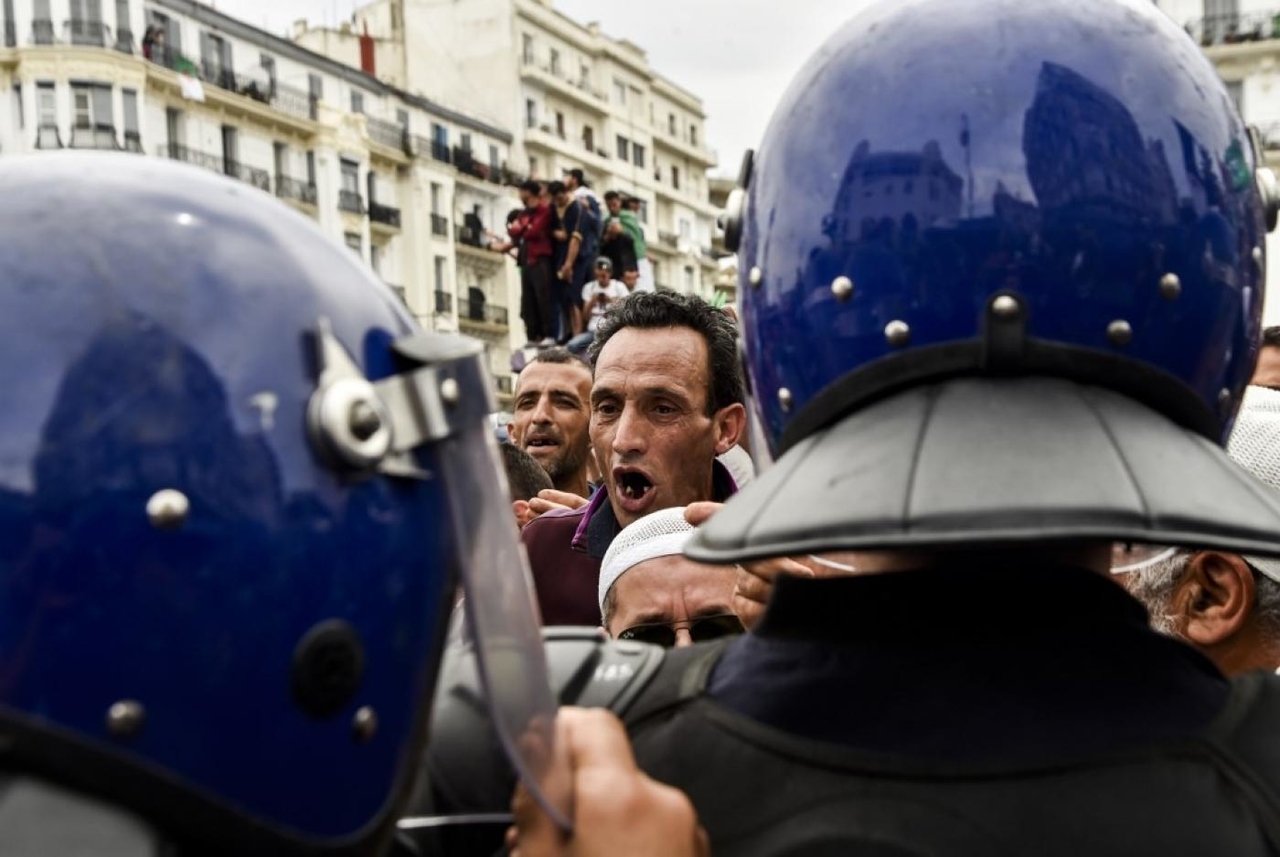The all-powerful army chief in Algeria has ordered the army to arrest any protesters opposing the schedule of the next elections, proposed to be held in December. On 18 September, Lieutenant General Ahmed Gaed Salah called for the blocking of all transportation ferrying protesters to the capital Algiers, to participate in the weekly demonstrations being organized to save democracy in the country.
Salah gave a speech at army barracks in southern Algeria, announcing, “We have instructed the gendarmerie to stop buses and cars that are used to this end; to seize and impose fines on their owners.” This was his first public statement to this effect, after the interim president Abdelkader Bensalah announced, on September 16, that presidential elections will be held on December 12 to resolve the political crisis in the country.
The army chief also claimed that “certain parties” were using the “freedom of movement as a pretext to justify their dangerous behavior” and “falsely claiming to be the voice of the Algerian people.” He alleged that the protesters were being manipulated by networks of “the gang” – a reference to those who were in powerful positions under the previous, though now deposed, regime of former president Abdelaziz Bouteflika.
Protesters have been organizing rallies and demonstrations in Algiers and other Algerian cities since February, 22. At the time, the then president Bouteflika had announced that he would also be contesting elections in April. The prospect of him being re-elected one more time led to the protests spreading like wildfire across the country, ultimately forcing him to resign. The presidential elections planned for April were also subsequently cancelled.
Popular protests have, however, continued even after Bouteflika’s ouster. The people have demanded the removal of all vestiges of the erstwhile ruling elite from the Bouteflika era, some of whom still remain in positions of authority. This includes, among others, the current prime minister Noureddine Bedoui, and the interim president Abdelkader Bensalah who is a close ally of Bouteflika. Bensalah was also the speaker of the upper house of parliament under the previous regime.
Earlier in July, Bensalah had scheduled the presidential elections to be held on July 4. However, the constitutional council in Algeria decided to cancel those elections, in light of the massive protests the decision had triggered. The popular mobilizations called for a boycott of the planned elections, citing the fact that they were being organized by a regime which included several members of the old guard, who the protesters were trying to get rid of. Participating in the elections would therefore be counteractive to their own principles and actions.
The ruling regime attempted to placate the protesters but to no avail. The people remain determined to make sure that the elections take place only after all members of the previous corrupt regime are removed.
The government had also announced on September 16, the formation of an independent election authority, to be responsible for the organization of the elections, instead of the interior ministry, which was mandated to manage them in the past.
The authorities have arrested several members of the Bouteflika regime as well, in an attempt to show their seriousness regarding tackling corruption and government mismanagement. Two former prime ministers, two former intelligence chiefs, eight ministers, and several prominent businessmen have been arrested as part of anti-corruption investigations.
However, as of now, the current regime has refused to bow down completely to the protesters’ demands for postponing the elections. President Bensalah has said that elections are the “sole democratic option” for Algeria to resolve the political crisis, adding that meeting all the necessary conditions for a free, fair and transparent presidential election is important. The army’s high command has also rejected any other solution to the crisis other than presidential elections “in the shortest possible time.” Algerians, however, remain unconvinced.





